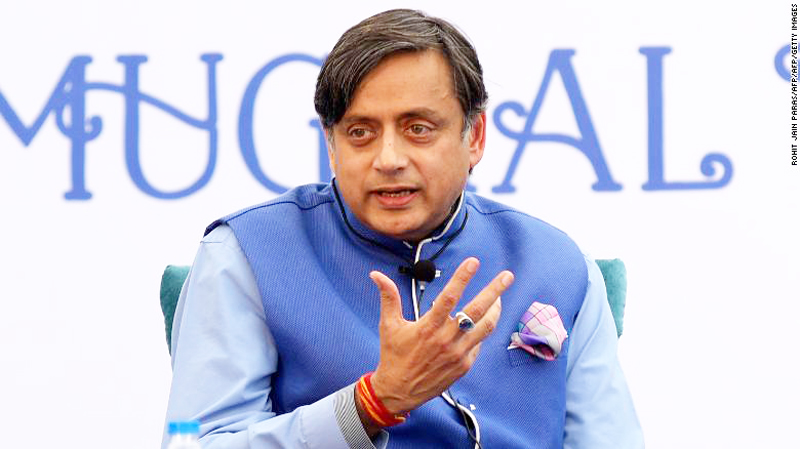NEW DELHI, Sept 29:
The political project of Hindutva is nothing less than an assault on Hinduism, but where the life-affirming religion has for millennia proved its resilience to external attacks, it is now revealing its vulnerability to attack from within, says writer-politician Shashi Tharoor.
In his new book “The Hindu Way – An Introduction To Hinduism”, which is a sequel to his bestseller “Why I Am a Hindu”, Tharoor, 63, delves deep into Hinduism’s most important schools of thought such as Advaita Vedanta and explores various other seminal concepts that underpin the religion.
He probes the fundamentals and complexities of Hinduism, presents both its ancient texts and the modern beliefs of Hindutva descriptively and on their own terms to offer a lucid but brilliant account of one of the world’s “oldest and greatest” faiths.
“Hinduism, with its openness, its respect for variety, its acceptance of all other faiths, is one religion which has always been able to assert itself without threatening others. But this is not the Hindutva that destroyed the Babri Masjid, nor that spewed in hate-filled diatribes by communal politicians,” Tharoor writes in the book, published by Aleph.
The author of 18 books notes that the Hindutva ideology is a malign distortion of Hinduism, which is a religion of astonishing breadth and of awe-inspiring tolerance.
He asserts that the Hindutva politics must be resisted for presenting a view of Hinduism that is at odds with everything the eclectic religion has sought to stand for.
“It (Hindutva) seeks to refashion Hinduism as something it has never been… The Hindutva project seeks to reinvent Hindu identity with a new belief structure and a new vocabulary,” he writes.
The senior Congress leader says the central challenge of India is to accommodate the aspirations of different groups in the national dream, asserting that the ethos of Hinduism – inclusionist, flexible, agglomerative – helped the nation meet this challenge.
“The doctrine of Hindutva prefers uniformity to accommodation. The battle for India’s soul will be between two Hinduisms, the ‘secularist’ Indianism of the nationalist movement and the particularist fanaticism of the Ayodhya mob. It is a battle that continues to rage,” he cautions.
Tharoor points out that the Indians today have to find answers to the dilemmas of running a plural nation.
Nationalists often define their nation in terms of a cohesive group of people held together by a common enemy, he writes, affirming that the common enemy of Indians is an internal one, but not the one identified by the Hindutvavadis and their ilk.
“The common enemy lies in the forces of sectarian division that would, if unchecked, tear the country apart – or transform it into something that most self-respecting Hindus would refuse to recognise,” warns the MP from Thiruvananthapuram.
Tharoor says he feels “ashamed” of what the Hindutvavadis have been doing while claiming to be acting in the name of his faith.
“How dare a bunch of goondas shrink the soaring majesty of the Vedas and the Upanishads to the petty bigotry of their brand of identity politics? Why should any Hindu allow them to diminish Hinduism to the raucous self-glorification of the football hooligan, or take a religion of awe-inspiring tolerance and reduce it to a chauvinist rampage?” he asks.
The misuse of Hinduism for sectarian minority-bashing is especially sad since Hinduism provides the basis for a shared sense of common culture within India that has little to do with religion, Tharoor notes.
“The reduction of non-Hindus to second class status in their own homeland is unthinkable, it would be a second partition: and a partition in the Indian soul would be as bad as a partition in the Indian soil. For Hindus like myself, the only possible idea of India is that of a nation greater than the sum of its parts,” he writes. (PTI)


